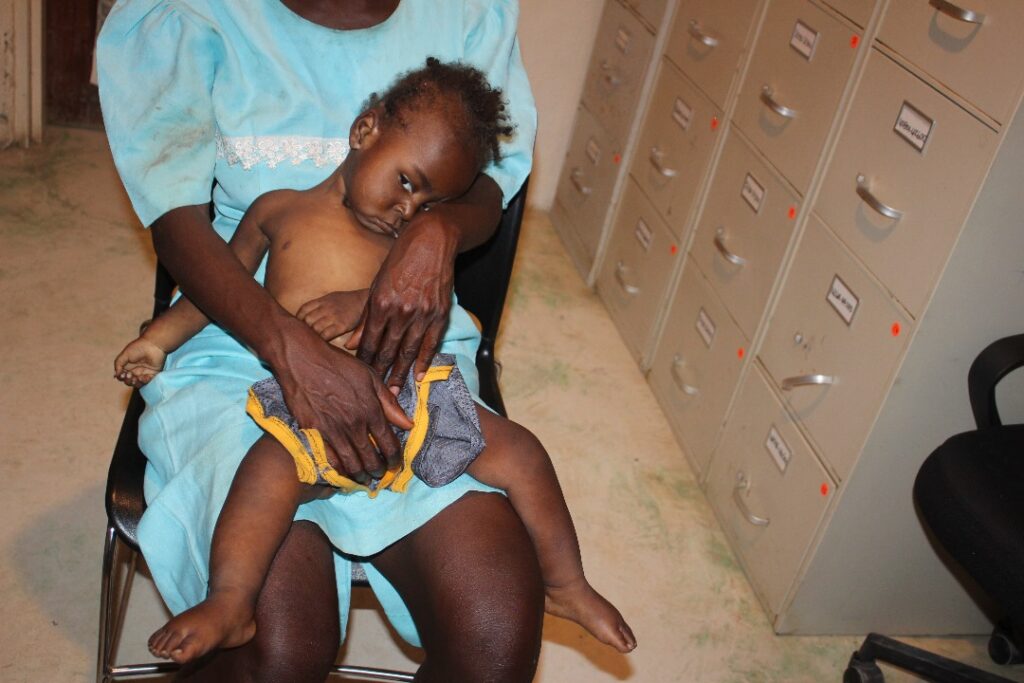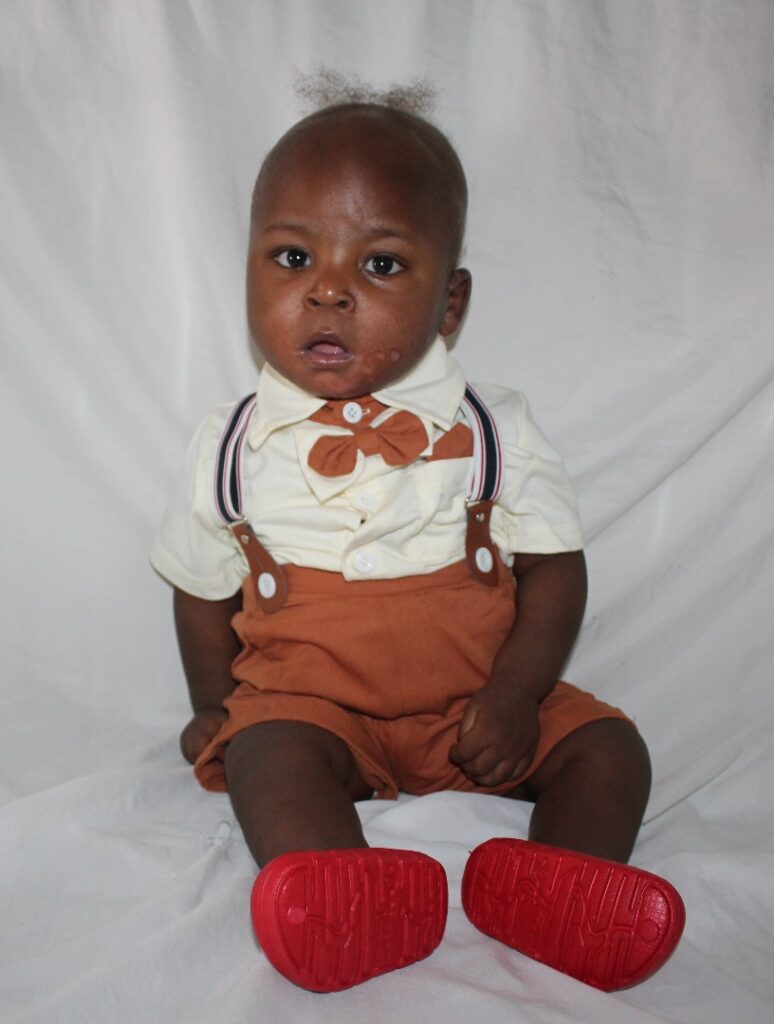
Brinelson was referred to us from a mountain village for severe anemia and edema. He arrived at our clinic on his first birthday. Unable to hold his head up, he was lethargic and weak. He was extremely malnourished with edema in his feet and lower legs. Some lab results continued to raise our concern with a hemoglobin of 2.3 g/L and hematocrit of 7%. This extreme anemia is not compatible with life. We put him on oxygen and placed a feeding tube because he did not have energy to eat. It was clear to me he would die without a blood transfusion. We started asking different hospitals if they could give an emergent blood transfusion. Unfortunately, blood transfusions usually take days to materialize because a physician must see the patient, determine that a blood transfusion is necessary, then prescribe the transfusion. Next, family members must take the prescription for the transfusion to the Red Cross and people must donate 2 units of blood for every unit prescribed. After the blood has been donated, then the Red Cross gives the family the blood. The family must place the blood in a cooler with ice and take it back to the hospital. While this is suboptimal in an emergency situation, it is the harsh reality of how a medical system often operates in a broken context like the current state of Haiti.
We sent Brinelson to a hospital with our runner, his mother, and a RHFH staff member. By the grace of God, they made it safely to the hospital. In a surprise, the hospital did not require Brinelson’s family to donate blood- they gave him emergency blood, although he did not receive the transfusion until day 2 of his admission. God, in His Mercy, made a way where there seemed to be no way, and so we pray prayers of thanksgiving as Brinelson survived. This is a true miracle.
He came back to the malnutrition center, was treated for malnutrition, and return to his home last week.


